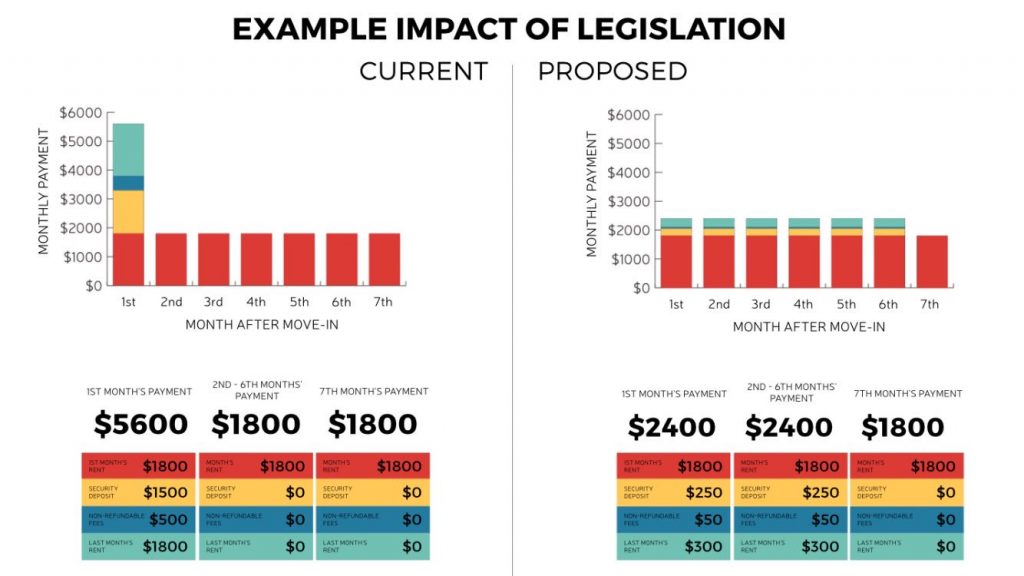Today Councilmember Kshama Sawant announced legislation that could provide renters with a much needed defense against initial price gouging when moving apartments.
The bill proposes to cap the combined total of security deposit and non-refundable move-in fees at the equivalent of one month’s rent. It prohibits the total amount of non-refundable move-in fees from exceeding ten percent of first month’s rent. The bill also requires landlords provide payment plans ranging up to six months to spread move-in costs over a greater amount of time, further lessening the financial shock of moving.

When crafting the bill, Sawant’s office consulted with the advocacy organization Washington CAN! and their members were a part of the photo op pictured above, which @SeattleCouncil tweeted out. As The Stranger reported, Washington CAN! conducted a survey that showed tenants felt a significant impact from move-in fees:
The biggest barrier to moving, a problem for 87 percent of respondents, is the burden of expensive up-front costs, including first and last months’ rent, a security deposit, and cleaning costs at move-in. Almost all respondents identified up-front costs as a barrier to moving, though it was particularly a problem for people of color, transgender/genderqueer people, older people, people who are disabled, and people paying with alternative sources of income. One hundred percent of Black and Native people, people over the age of 55, Section 8 voucher holders, and people paying with Social Security income, said they perceive up-front costs as a significant barrier to moving. These are groups of people most likely to have little to no wealth or savings, and limited expendable income.
If passed, the move-in fee law would join Sawant’s “Slumlord Law” (passed in June) in providing Seattle tenants greater protections under the law. These two laws are important but admittedly smaller skirmishes taking place on the larger battlefield of housing affordability in Seattle.
The biggest challenge tenants face in Seattle is rising rental prices, which definitely seems to be exacerbated by zoning which outlaws apartment development on the great majority of Seattle’s land. Hopefully we see some progress on that front, too, as we also watch the progress of this bill. The move-in bill’s backers expect to face opposition from the landlord lobby, just as they did in passing the Slumlord Law.
Doug Trumm is publisher of The Urbanist. An Urbanist writer since 2015, he dreams of pedestrian streets, bus lanes, and a mass-timber building spree to end our housing crisis. He graduated from the Evans School of Public Policy and Governance at the University of Washington in 2019. He lives in Seattle's Fremont neighborhood and loves to explore the city by foot and by bike.


